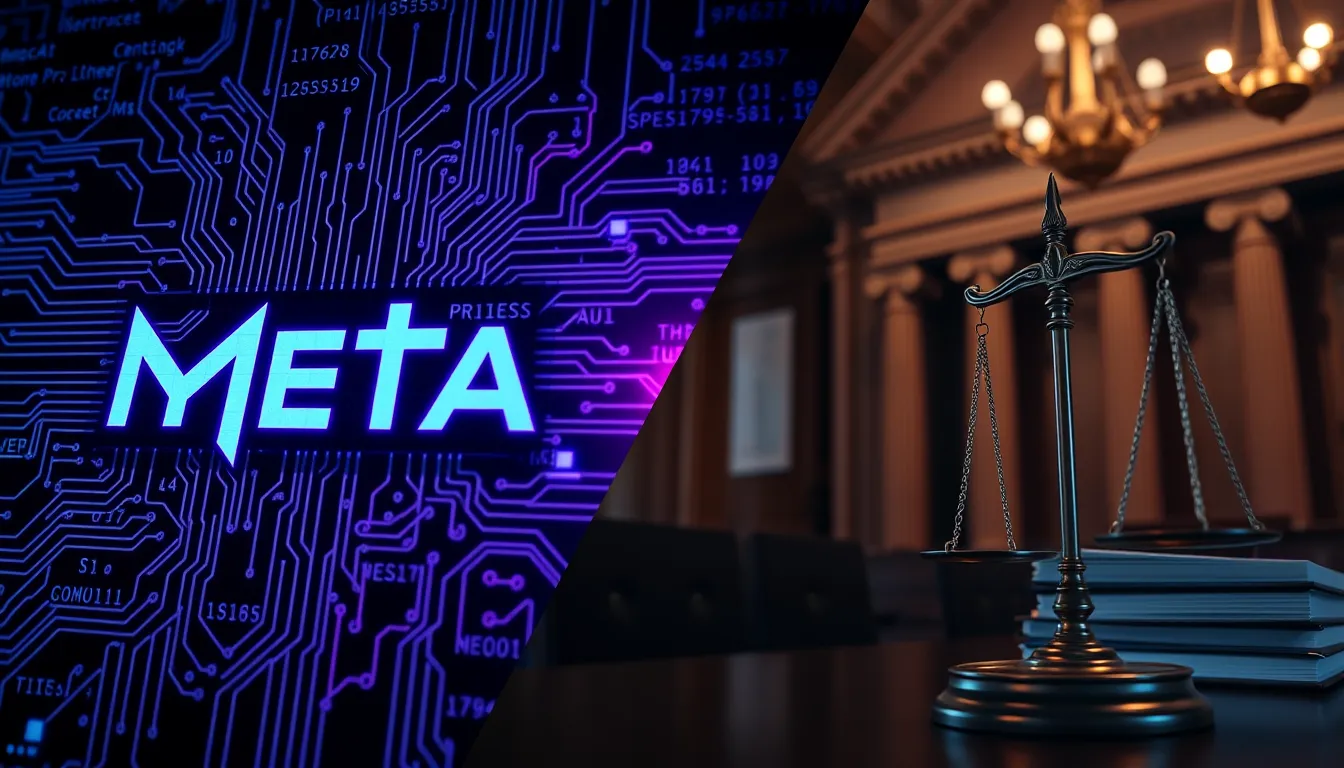Now Reading: Meta Data Usage Controversy & AI Training Lawsuit: A Closer Look
-
01
Meta Data Usage Controversy & AI Training Lawsuit: A Closer Look
Meta Data Usage Controversy & AI Training Lawsuit: A Closer Look

Meta Data Usage Controversy & AI Training Lawsuit: A Closer Look
In an era where digital privacy and ethical AI development are at the forefront of public discourse, recent legal battles have brought unprecedented attention to how tech giants handle user data. The case in point revolves around the contentious issues of the Meta data usage controversy and the AI training data lawsuit. As regulatory bodies and privacy advocates scrutinize data practices, questions arise regarding the separation of personal user behavior and AI training, which has triggered heated debates and legal disputes.
Understanding the Meta Data Usage Controversy
The core of this controversy stems from allegations that Meta, a leading digital technology company, mishandled certain sensitive content. The focus on the term “Meta data usage controversy” highlights a case where downloads of explicit material were claimed to be for personal use rather than for incorporation into AI training datasets. Notably, long-tail phrases like “Meta downloaded pornographic material personal use” have emerged in public queries, underscoring the need for clarity between personal user actions and corporate data utilization. Meta’s official stance, as detailed on their website (https://about.meta.com), emphasizes that any such downloads were solely for personal consumption. This case prompts us to question how companies delineate personal digital footprints from datasets intended for machine learning and product development.
Legal Implications of the AI Training Data Lawsuit
Another pivotal aspect of this discourse is the AI training data lawsuit that has caught the attention of both legal experts and privacy regulators. The lawsuit challenges whether and how user data, including controversial materials, is exploited for enhancing AI capabilities. By incorporating the term “AI training data lawsuit”, legal bodies are scrutinizing if data meant for personal use has been misappropriated for training algorithms. This ongoing litigation raises several critical issues:
- The legitimacy of using personal data in AI development without proper consent.
- The potential repercussions for companies found to be exploiting digital content.
- The broader impact on how AI and personal data are intertwined in technological progress.
Digital Privacy and Ethical AI Development
In the midst of these debates, the digital privacy debate intensifies. Concerns about privacy and data security play a crucial role in discussions about ethical AI development. The core issue is balancing innovation with the protection of individual rights. As technological advancements continue, questions arise on whether companies are overstepping boundaries by incorporating user behavior into AI training processes. Not only does this affect consumer trust, but it also forces regulators to consider stricter rules regarding personal data usage.
Breaking down the discussion further, key areas of focus include:
- Transparency in data collection and usage.
- Consent processes for using personal data in AI training.
- Clear distinctions between data used for personal enrichment versus corporate AI improvement.
This section also examines the impact of digital privacy on AI development. Research suggests that greater transparency and rigorous regulation can foster an environment where innovation does not come at the cost of individual privacy. Legal debates and technological ethics are converging to pave the way for a secure digital future.
Personal Use vs. Corporate Data Strategies
A critical portion of the discussion centers on distinguishing personal use from broader corporate data strategies. Advocates argue that there must be a clear separation between personal digital activities and the exploitation of such data in AI training. The phrase “separation of personal user behavior and AI training” reflects this demand for clarity. Despite assertions from Meta that the incident in question was strictly for personal use, the overlap between individual actions and corporate algorithms continues to raise eyebrows among data privacy experts.
Moreover, analyzing the juxtaposition of individual digital choices against massive data aggregation practices uncovers a fundamental tension in modern tech practices. Points of debate include:
- The ethics of data collection from personal use scenarios.
- Potential abuses when personal data inadvertently becomes part of a corporate dataset.
- The legal implications if such data is used without explicit user consent.
Conclusion: Looking Forward in the Era of Digital Privacy
The unfolding narrative of the Meta data usage controversy and the associated AI training data lawsuit is emblematic of broader challenges at the intersection of technology, law, and ethics. As the legal proceedings continue, they underscore the urgent need for clear guidelines on digital privacy and ethical AI development. Moreover, these debates serve as a reminder that while technological innovation drives progress, it must not compromise individual rights. With continued legal scrutiny and public dialogue, stakeholders can work together to strike a fair balance between harnessing digital data for advancements in AI and safeguarding personal digital liberties. The outcome of this controversy will likely set important precedents for how personal data is treated in the realm of emerging technologies, ensuring that future practices are both ethical and transparent.

























